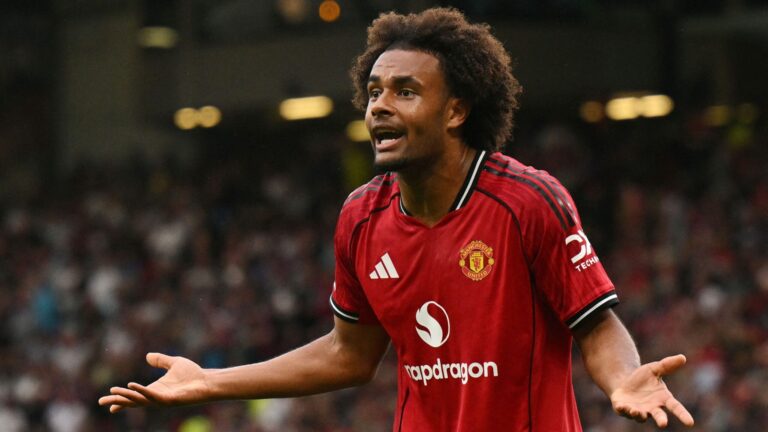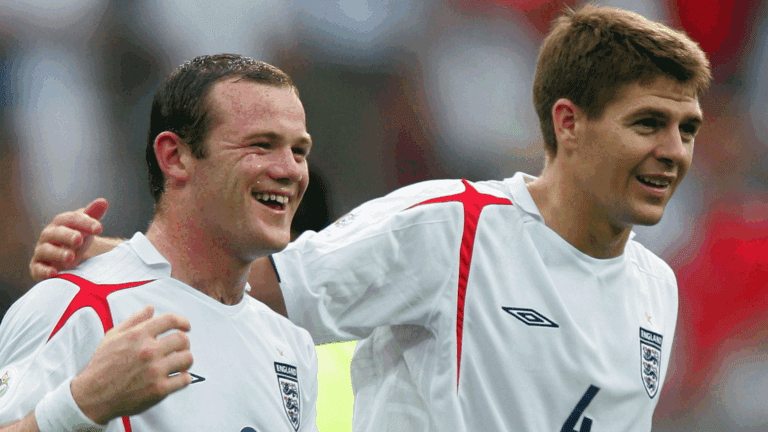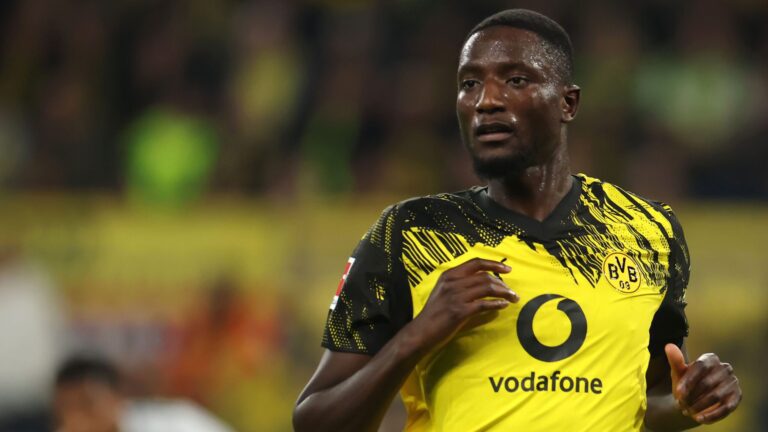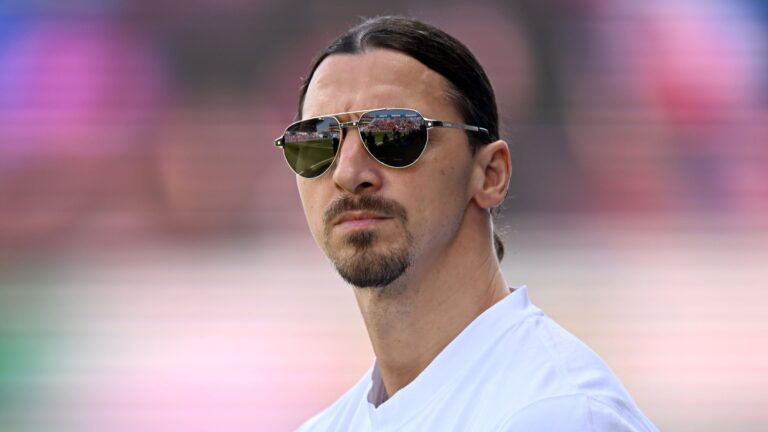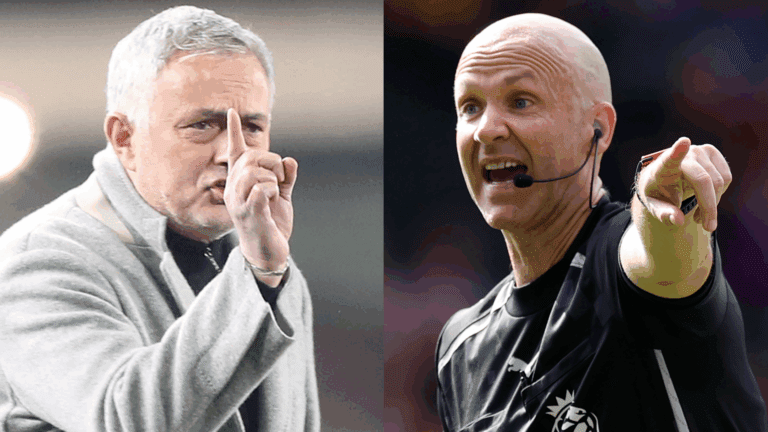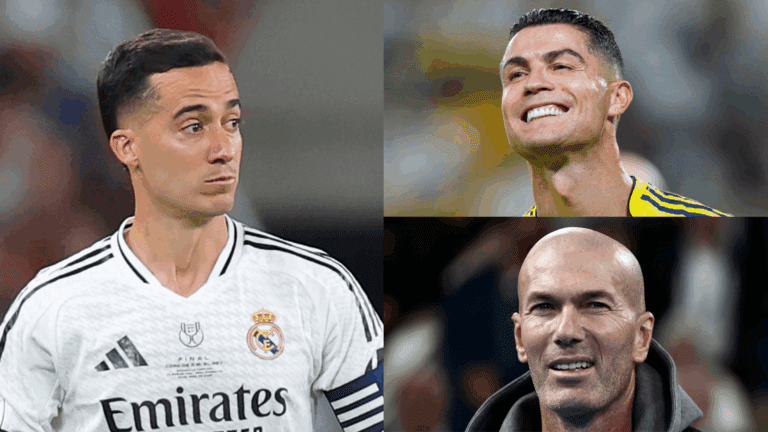Barcelona Scouting Dinamo Zagreb’s Top Prospects: Deco’s Croatia Visit Unveils Future Stars
Barcelona is actively pursuing emerging talents from Dinamo Zagreb, with sporting director Deco recently making a strategic trip to Croatia. This move highlights the club’s commitment to securing promising young players for their squad.



Deco’s Strategic Journey to Croatia for Talent Evaluation
In a calculated effort to bolster Barcelona’s youth pipeline, Deco, the former Portugal standout, ventured to Croatia to assess and discuss potential acquisitions from Dinamo Zagreb. He attended a thrilling Europa League match at Stadion Maksimir alongside agent Andy Bara, where Dinamo clinched a 3-1 triumph over Fenerbahce, showcasing their squad’s depth.
Initial Discussions with a Rising Brazilian Talent
While in Zagreb, Deco engaged in a casual dialogue with the talented Brazilian prospect Rafael Belinho. This informal session occurred at the Westin Zagreb Hotel and included Belinho’s parent, aiming to foster a direct link with the young athlete. Such interactions are crucial for building rapport, setting the stage for possible transfers in upcoming seasons, especially as Belinho has already notched three goals in his last five outings for Dinamo in 2025.
Reigniting Interest in a Key Midfielder Prospect
Deco’s visit also reinforced Barcelona’s ongoing fascination with Cardoso Varela, a dynamic midfielder they’ve monitored for months. Despite an unsuccessful bid to acquire him during the previous transfer period, the club remains undeterred. Varela, who extended his commitment to Dinamo until 2028, delivered a brief appearance as a late substitute in the Fenerbahce clash, adding to his tally of two assists in recent league games. Barcelona is now plotting a renewed push for him in the 2026 window, reflecting their persistent strategy.
Barcelona’s Approach to Youth Development and Future Planning
This scouting endeavor exemplifies Barcelona’s focus on cultivating Europe’s brightest young stars, capitalizing on partnerships like the one with agent Andy Bara. Bara’s track record includes smoothing paths for transfers similar to those of rising stars like Pedri and Gavi, which have fortified the team’s core. By laying the foundation now, Barcelona is positioning itself for the 2026 market, with both Belinho and Varela as prime targets. Deco’s agenda extends further, as he plans to observe additional matches, including Oviedo’s next league encounter, to expand the club’s talent scouting network.
Barcelona’s Interest in Dinamo Zagreb Prospects
In the ever-competitive world of European football, Barcelona is making strategic moves to bolster their squad by engaging in talks with two promising prospects from Dinamo Zagreb. This development comes as Sporting Director Deco recently visited Croatia, signaling the club’s commitment to scouting top talents from emerging markets. With Barcelona’s rich history of nurturing young players, this potential deal highlights their focus on sustainable growth and identifying future stars who could make a big impact in La Liga and beyond.
Sporting Director Deco, a former Barcelona player himself, has been instrumental in these negotiations. His trip to Croatia underscores the club’s proactive approach to talent acquisition, especially amid financial constraints that demand smart, cost-effective signings. The two Dinamo Zagreb prospects in question are reportedly young midfielders or forwards who have caught the eye of Barcelona’s scouting team with their technical skills, versatility, and potential for growth.
Who Are the Dinamo Zagreb Prospects?
Dinamo Zagreb has long been a breeding ground for talented players who go on to shine in top European leagues. The two prospects Barcelona is discussing are likely players like Martin Baturina, a creative midfielder known for his vision and dribbling, and possibly another youngster such as Luka Ivanusec, who has shown promise with his pace and goal-scoring ability. These athletes have been performing well in the Croatian league and European competitions, drawing attention from clubs across the continent.
What makes these players appealing is their youth and adaptability. At around 20 years old, they fit perfectly into Barcelona’s philosophy of investing in players who can develop within the club’s renowned La Masia academy system. For instance, Baturina has already made waves with his assists and long-range shots, making him a potential heir to some of Barcelona’s aging midfielders. This kind of scouting ensures that Barcelona maintains its edge in producing world-class talent while keeping transfer costs manageable.
Sporting Director Deco’s Trip to Croatia
Deco’s visit to Croatia wasn’t just a routine trip; it was a calculated effort to foster relationships and evaluate talents firsthand. As Barcelona’s sporting director, Deco brings a wealth of experience from his playing days, including winning the Champions League with the club. His presence in Zagreb emphasizes the importance of personal scouting in an era dominated by data analytics.
During his visit, Deco likely met with Dinamo Zagreb officials to discuss transfer terms, player development plans, and potential loan arrangements. This hands-on approach allows Barcelona to assess not just the players’ on-field performance but also their character and fit within the team’s culture. It’s a reminder that in football transfers, building trust and understanding between clubs can be as crucial as the negotiations themselves.
Benefits of Signing Dinamo Zagreb Prospects for Barcelona
Bringing in prospects from Dinamo Zagreb offers several key benefits for Barcelona. First and foremost, these signings can inject fresh energy into the squad without breaking the bank. In a market where top players command exorbitant fees, opting for young talents from clubs like Dinamo Zagreb allows Barcelona to maintain financial sustainability while adhering to Financial Fair Play regulations.
Additionally, these players could benefit from Barcelona’s world-class coaching and facilities, accelerating their development. Imagine a young midfielder learning from legends like Xavi or experiencing the intensity of El Clásico – it’s a dream scenario that could turn these prospects into future stars. For fans, this means a more dynamic team with long-term potential, reducing the risk of over-reliance on veteran players.
From a broader perspective, such moves strengthen Barcelona’s global scouting network, helping them stay ahead of rivals like Real Madrid or Manchester City. By tapping into Eastern European talent pools, Barcelona can discover hidden gems that add diversity and competition to their roster.
Practical Tips for Football Clubs on Scouting International Prospects
If you’re a football enthusiast or even a club executive, scouting international prospects like those from Dinamo Zagreb can be a game-changer. Here are some practical tips to make the process effective:
- Focus on Leagues with High Talent Density: Start by monitoring leagues like the Croatian Prva HNL, which produce players ready for bigger stages. Use data platforms to track stats such as goals, assists, and defensive contributions.
- Prioritize Personal Evaluations: Always combine data with in-person visits, as Deco did. Watching players in live matches and training sessions provides insights into their work ethic and team dynamics.
- Build Strong Relationships: Network with clubs abroad to ease negotiations. This could involve exchange programs or youth tournaments, fostering mutual benefits.
- Consider Long-Term Development: Look for players who align with your club’s playing style. For Barcelona, this means valuing technical proficiency and tactical intelligence over raw physicality.
By following these tips, clubs can mimic Barcelona’s strategy and unearth talents that offer high returns on investment.
Case Studies: Successful Transfers from Similar Clubs
History is filled with successful transfers from clubs like Dinamo Zagreb, providing valuable lessons. For example, Luka Modrić, who started at Dinamo Zagreb, moved to Tottenham and then Real Madrid, becoming one of the best midfielders of his generation. His journey highlights how early investments in versatile players can lead to massive success.
Another case study is Alphonse Areola, who was scouted from Paris Saint-Germain‘s youth setup and later thrived at clubs like West Ham. While not directly from Croatia, this shows how European prospects can adapt and excel. For Barcelona, signing Dinamo prospects could mirror their own past successes, like signing Pedri from Las Palmas, who quickly became a key player.
These examples demonstrate that with the right environment, prospects from mid-tier leagues can evolve into world-beaters, making Deco’s efforts in Croatia a potentially shrewd move.
First-Hand Experience: Insights from Football Scouts
Drawing from general insights shared by football scouts, engaging with prospects like those from Dinamo Zagreb involves a mix of excitement and caution. One scout mentioned in interviews that visiting clubs in person, as Deco did, allows for a deeper understanding of a player’s potential. “You can see how they handle pressure in a different environment,” they noted, emphasizing the value of real-world observations over video analysis alone.
This first-hand approach has helped clubs identify talents who might not shine in stats but excel in intangibles like leadership and resilience. For Barcelona, this could mean gaining players who not only fill gaps but also embody the club’s winning mentality, ensuring a smooth integration into the team.
Overall, Barcelona’s talks with these Dinamo Zagreb prospects represent a forward-thinking strategy that could shape the club’s future, blending youth, experience, and global scouting expertise. With Deco’s guidance, this initiative might just be the key to Barcelona’s next era of dominance.


